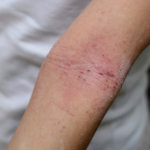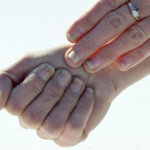
Bedwetting is a common health condition and symptom of certain other conditions that people normally associate with children. It happens to most smaller children for at least a few years, although it can continue in older children and sometimes even resurface in adulthood. It’s considered a rarer condition in adults, and statistics say that it only happens to about 2 to 3% of the adult population – although the number is estimated to be far higher because most cases are never reported or diagnosed because it can be an embarrassing symptom.
If bedwetting occurs as an adult, it’s likely that it’s a symptom of something much more serious that needs to be diagnosed and addressed. There’s no reason to be embarrassed about when it comes to experiencing medical issues: Always report it to your doctor.
Here are 8 of the most common causes of bedwetting in adults that can help to treat the condition.
1. Stress Disorders
Stress disorders are extremely common, and a large chunk of the population suffers some type of chronic stress disorder that they might not even know about – this can lead to symptoms like depression and panic attacks, though the conditions are easy to treat. It can take just a few tests and the right medication to turn the stress disorder around into something that can be lived with easier. If you suspect you might have a stress disorder of any type, see your doctor.
Some stress conditions are temporary and happen when one is going through severe physical or emotional stress; sometimes past trauma can also trigger this condition in many. Bedwetting becomes a common symptom when the brain is experiencing severe trauma, and it can be treated the same way stress can: Usually it takes only the right medication along with learning methods to cope with stress and deal with trauma easier.



